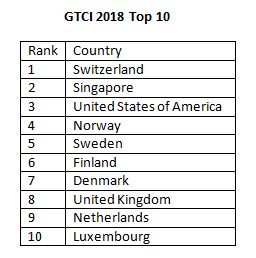What comes to your mind when you think of a remote worker? Humor me, close your eyes and picture a remote employee. Done?
If you’ve imagined a perfect employee who’ll comply with your business demands, we happen to know the person. Email us, and we’ll put you in touch.
Conversely, are you feeling a bit unsettled thinking about someone attired in gym clothes, blasting death metal, and coding from a café, while checking out the cute barista?
I’d love to contradict you right about now and say that’s a sad stereotype. I’d be kidding.
Some people do work that way. The way that might deter you from hiring remote employees. And the way you think will give you ulcers, nightmares, and bile.
BUT if you think that’s the only option you have when it comes to hiring remotely, you’d be profoundly mistaken. And more importantly, you’d be missing out on a bevy of great talents who can save your business a lot of trouble.
The thing about remote work is that it benefits both employers and employees. So, it attracts talented professionals just as much as it does top businesses.
That’s a growing number of professionals with experience, diverse skill sets, and inclusive viewpoints are looking to work remotely – thereby enriching the remote talent pool vastly.
They may still be wearing gym clothes… We don’t know! But we can give you an idea of the kind of employees that await you should you choose to hire remotely.
- The Experienced Remote Worker
There are managers and executives who want to reap the benefits of remote work, as digital nomads.
Executives with substantial responsibilities on their shoulders want to work sans distractions. Managers don’t want to spend their days (and nights) at the office, but get the work done and spend more time with their families.
Baby Boomers still want to work – and they have a lot to offer, although they’re not keen on long commutes.
The upshot is if you hire remotely you have access to a more experienced, more educated talent pool who are just not willing to work from an office.
Many employers agree with this notion because the list of executive remote jobs is also on the rise.
2. The Valedictorian
Or the savant, or the much-maligned “nerd.” A person who knows the ins and outs of everything related to her field.
Think that hiring such a person is impossible within limited budgets? Perhaps in America.
There are professionals from across the world who are equally as passionate and at least as qualified and want to work remotely. Global Education System’s 2018 report places many countries above the USA when it comes to qualification. They also happen to be far more competitive.
Those experts prefer working for US companies because of better remuneration – which is still far less than what you’d pay your American employees, thanks to geographic wage differences.
The result: you can hire the crème-de-la-crème with the potential to take your business to new heights and still pay them less than your US employees if they work remotely.

Image Source: INSEAD
3. The Vanguard
Far-reaching innovators are coming out of many countries, not just America – as confirmed by the World Intellectual Property Organization.
According to Thomson Reuters, along with the USA, Europe and Asia are the leaders in IT.
This results in better levels of learning and higher degrees of competition amongst the viable workforces of those countries. Regardless of whether they’re looking for a local job or a remote one, if they want to get hired, they’ll have to keep up with new developments in the field.
What does that mean for you? You have the opportunity to hire remote workers from Europe or Asia who, in addition to strong fundamentals, know about the latest developments in the field.
And here’s the kicker. The technology that a foreign hire may already know, you might need to teach your local employees.
4. The Scout
Working, particularly in a remote team, calls for much more than technical skill sets. Work preparedness is a subject in its own right. And it’s one that many countries are putting more emphasis on than the USA.
Job candidates in-the-know are immersing themselves in this subject so that they can compete on a global level and fit in with any team, anywhere.
From strong communications skills, thinking creatively, and working under pressure, to absorbing the cultural norms of other countries, the astute employee is prepared and can step in without missing a beat. It’s not unusual for candidates from other countries to specifically learn about American and Western business practices and culture.
So by hiring the right remote foreign worker not only can you put your fears of cultural missteps to rest, you can save time when onboarding them into your company.
5. The Employed Remote Worker
It’s easy to pick a remote worker from a job board. But that won’t alleviate your concerns about quality, experience, or readiness for work. If you’re hiring someone without seeing them, you may be worried about these issues.
However, a presently-employed candidate equals proven track record – not doctored to look good. That’s why, we think, it’s better to go after employed workers when you’re hiring for a remote position.
By no means is this everyone’s cup of tea. But at DistantJob we’ve found more success hiring from an already-working pool of aspirants.
There’s another offbeat side effect of this. More employees are looking to change their status from in-office worker to remote worker. Working from home is now considered a top incentive – decisive enough to leave a job and join another.
And if you offer this sought-after option, you’re naturally going to generate a greater number of leads as far as highly qualified candidates are concerned.
Finding the right remote candidate takes finesse. The process can be fraught with mistakes that could put you off remote work altogether. And if you keep plowing job boards, all you’ll do is “swipe left.” But discovering your right candidate is something we excel at. So, drop us a line and let’s get to work.





